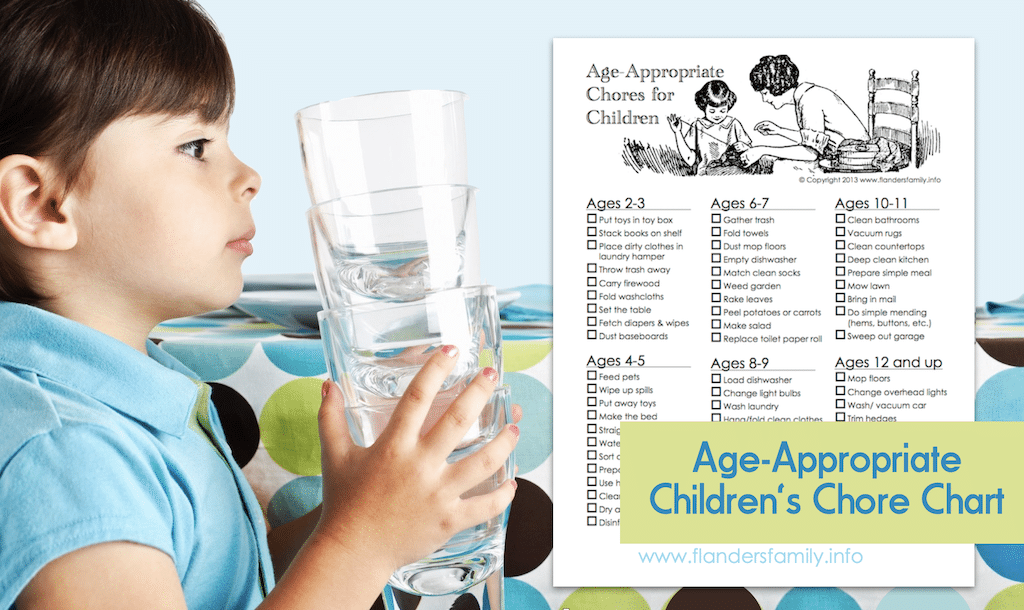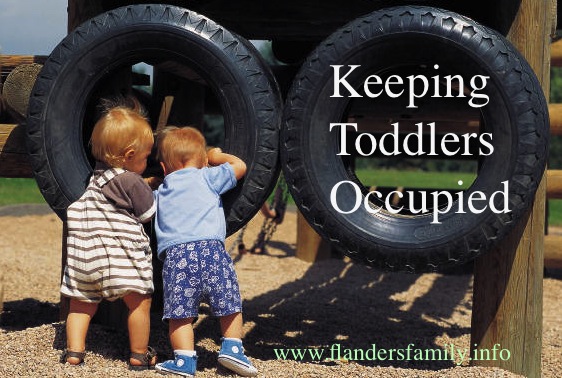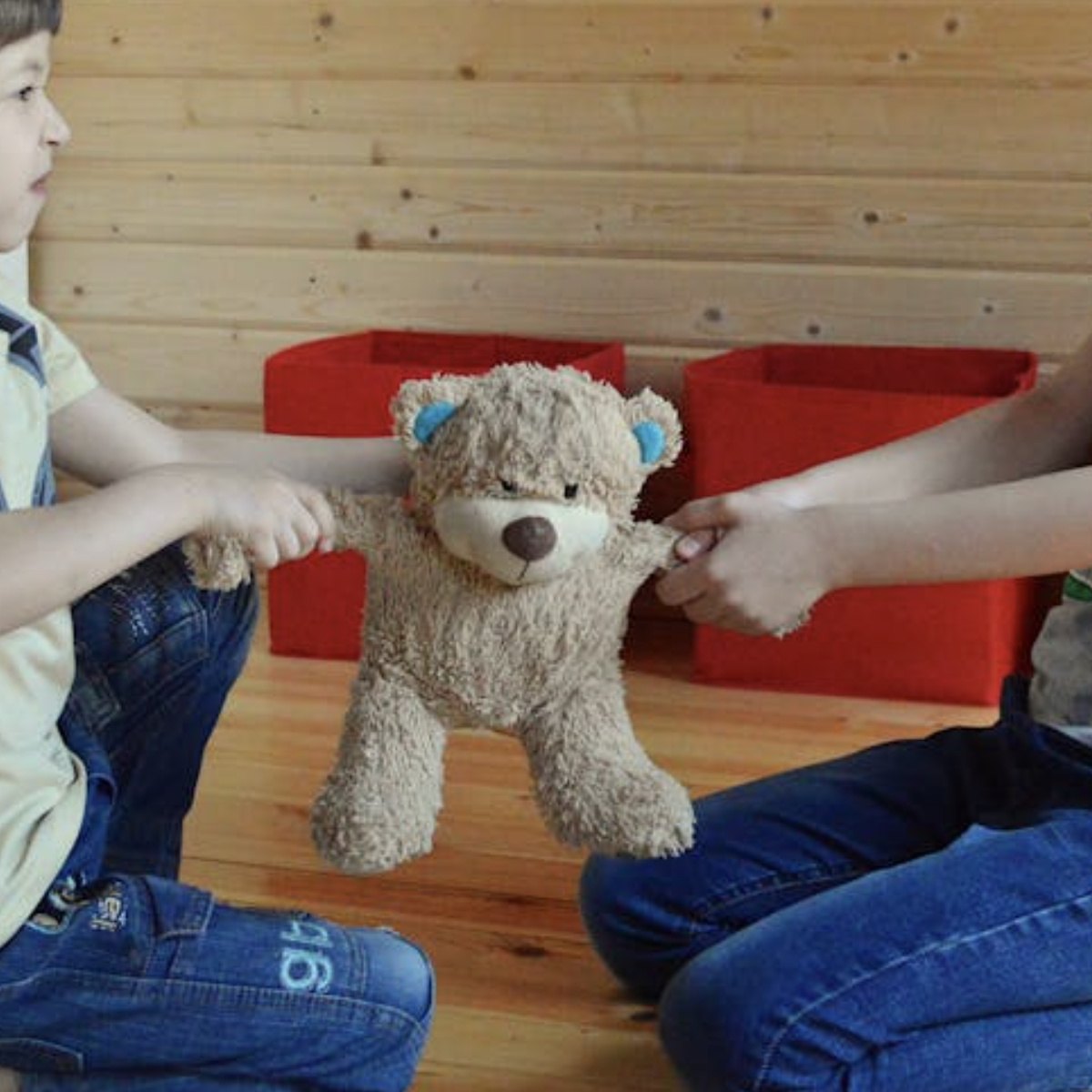EP 100: Q&A – Busy Toddlers, Morning Sickness, & Dealing with Disapproving Parents

I’m answering more questions from listeners on Episode 100 of the Loving Life at Home podcast. Tun in as we discuss training toddlers, homeschooling with morning sickness and dealing with parents who seem to disapprove of your life choices.
Show Notes
VERSES CITED:
- Matthew 6:27 – “Can any one of you by worrying add a single hour to your life?”
- James 1:5 – “But if any of you lacks wisdom, let him ask of God, who gives to all generously and without reproach, and it will be given to him.”
- Philippians 2:3-4 – “Do nothing from selfishness or empty conceit, but with humility of mind regard one another as more important than yourselves; do not merely look out for your own personal interests, but also for the interests of others.”
RELATED LINKS:
- EP 9: The Best Way to Handle Negative Comments
- EP 68: The Time My Husband Almost Got a Vasectomy
- Stop, Drop, and Roll – free printable exercise game
- How Do You Handle Picky Eaters – our best tips
- 5 Smart Ways to Get Kids to Eat More Vegetables
- Age-Appropriate Chores – free printable chart
- Cultivating Creativity in Young Children – free printable chart
- French Kids Eat Everything – book by Karen Le Billon
- Keeping Toddlers Occupied
- God Hath Not Promised Hymn
STAY CONNECTED:
- Subscribe: Flanders Family Freebies -weekly themed link lists of free resources
- Instagram: @flanders_family – follow for more great content
- Family Blog: Flanders Family Home Life – parenting tips, homeschool help, printables
- Marriage Blog: Loving Life at Home– encouragement for wives, mothers, believers
- My Books: Shop Online – find on Amazon, at Barnes & Noble, or through our website
Q&A: Toddlers, Sickness, & Disapproval
Full transcript from episode 100
Hello, friend. Welcome to Loving Life at Home: Episode 100. Can you believe it? I finally reached the double digits! And I want to celebrate by answering some more questions from my mailbox. Topics today range from busy boys to baby announcements to homeschooling when you’re queasy. So let’s jump right in and get started.
Q: How do you handle family’s negative response to baby news?
My first question is about how to handle extended family’s lackluster response to pregnancy announcements. This reader writes:
Hello! I recently discovered your podcast after hearing you speak on Abbie Halberstadt’s podcast. Thank you for your mentor-style content!
My husband and I are missionaries. We’ve had [six children in six years, including a set of twins]. I just listened to your 2nd episode and wanted to ask you about dealing with disapproving parents. In this case, it is my own parents.
Two years ago, our work took us far away from all our extended family, which has been a very difficult transition. When my parents came for a visit, we happily announced that we were expecting another baby. To which my dad responded, “Are you serious?!” – and not in a cheerful manner.
My mom stayed with us for a while after our youngest child was born, but there has been tension ever since. We feel like a burden to our family, but we don’t have any other support. Any encouraging words?
A: Give it time (and lots of grace).
You can be excited about your pregnancy, and you can tell others about your pregnancy, but you can’t force others to be excited about your pregnancy.
I’ve done a podcast episode on this topic in the past which I’ll link in today’s show notes, but the main thing I recommend is – first – to understand that any other person’s reaction to your pregnancy announcement has more to do with his or her own particular beliefs and struggles and worries than it does with you, and – second – to assume the best on their behalf.
This is especially true when the lackluster reactions are coming from family members. Give them time to warm up to the idea, and – unless they tell you differently – assume any reservations they express are coming from a place of love and concern for you.
Time to call it quits?
Like when my father tried to privately talk my husband into getting a vasectomy after our third was born. I know Dad’s main concern was my health, because (due to the baby’s position) walking was painful during my last trimester of that pregnancy (pregnancy #3) and the delivery was more difficult than it had been with my other two babies. And I’m sure it worried Dad to think that downward trend might continue through subsequent pregnancies (although, thankfully, it didn’t).
Even my own mother greeted those early pregnancy announcements with more trepidation than joy. I’ve never really thought of my mother as someone who is prone to worry – she has such a vibrant faith in God and is so faithful in prayer, I can’t imagine her worrying about anything for very long .
That’s how I am, too. I’m out like a light as soon as my head touches the pillow. Jesus reminds us we can’t add a minute to our life or an inch to our stature by worrying and commands us not to do it. So I don’t. I just leave all my concerns at the foot of the cross and trust Him to take care of them.
Wait until the weekend
And I’m pretty sure that’s what my mother does as well. But I guess I must’ve put that character quality to the test when I was younger, because at one point, she asked me to just wait until Friday to announce any future pregnancies.
She was working at that time and explained that it might adversely affect her job performance if I told her I was pregnant during the week because she would lose sleep thinking about it. By waiting until Friday to give her that kind of news, she had the whole weekend to recover before having to head back into the office on Monday.
Well, for Mom, I think she was primarily worried about the financial stress of a growing family. My husband was a student, and we were living on school loans for the first five years of our marriage. Then he was in a high-stress, low-pay residency for the next five years, so I suspect that my mother was afraid the extra strain of a growing family might cause him to drop out and never finish his training.
That turned out to be an unfounded worry (probably because my mom spent so much time praying against it while she lay awake in bed after each pregnancy announcement), but at the time, I’m sure it seemed like a very real possibility to her.
Once Doug graduated and we moved to Tyler, I remember calling Mom and saying, “Well, Mom, it’s Friday. Can you guess what I’m going to tell you?”
Baffled, she answered, “No. What?”
Then when I told her we were expecting another baby, she asked, “What does that have to do with it being Friday?”
So I reminded her of her earlier request, at which point she laughed a little sheepishly and said, “Oh, Jennifer. I stopped worrying about you a long time ago.”
Fortunately, she still prays for me daily, as well as for my husband and all our kids and grandkids and dozens of other people by name, who are all on her prayer list. But it’s a comfort to think that she’s no longer losing sleep over us or our life decisions.
consider root cause of their concerns
So that’s what I would say about people who don’t seem as enthused about your pregnancy announcements as you’d like them to be. Extend grace and give them time to warm up to the idea and do your best to alleviate any underlying fears or concerns they may have on your behalf.
Understand that they may also have fears on their own behalf. More children means more mouths to feed each time you come to visit. More space that is needed to accommodate a bigger crowd. More birthdays to remember and more Christmas gifts to buy.
I know this for a fact, because that was a concern that my own mother-in-law voiced to me when we had our fourth or fifth baby. She said she wouldn’t be able to keep up with all the birthdays or afford to buy the same kinds of gifts or lavish the same attention on half a dozen or more children she could give to one or two.
And that is absolutely a valid concern. You can’t give twelve children the same upbringing you might give an only child. But that’s okay.
I assured my mother-in-law that we didn’t expect her to buy our kids any gifts for Christmas or birthdays. That the toys that we invested in for the first two kids would still be serviceable for the next ten or twelve. And they have been. And they’ve entertained our grandchildren as well.
I told her we didn’t have space for a bunch of individual gifts for each individual child, anyway. That we’d rather have the children than the trappings. And that they could buy a family gift – like a book for us to read aloud together or a game we could play together – if they felt so inclined, but they needn’t even do that if it stressed them out at all, and that we wouldn’t think any less of them for not sending gifts. And we don’t. I’m thankful Doug’s mom was willing to be honest with me and tell me what was bothering her.
Of course, gifts for special occasion are a minor concern compared to figuring out what to do if something happened to you. Your parents might fear that, if you were to die, they’d be left holding the bag when it came to taking care of their grandchildren. And while they might feel up to the task of raising one or two, the thought having to feed and clothe and shelter and care for a whole houseful of children might make their head spin. So those concerns might dampen that the joy they’d otherwise feel about having another grandbaby.
That’s why it’s important for you to pray for them with the same fervency you’d like them to adopt in praying for you.
reducing the tension between you
As for feeling like a burden to your family, I don’t really know what to tell you. Family dynamics differ from situation to situation, and there are undoubtedly a lot of factors contributing to the tension that you’re feeling. But as far as general principles go, I would focus on the following principles:
1 – Pray for wisdom
James 1:5 promises as God will give generously to anybody who asks for wisdom. So start there.
2 – Teach your children to be a blessing
Train them to say “please” and “thank you.” “Yes, sir” and “no, m’am,” to pitch in and help with chores whenever they can, to be kind to one another and to their elders, to play quietly without bickering, and to keep their voices calm. No screaming! My husband’s grandmother used to clinch her head if our little ones got the least bit loud – even if it was happy laughter. Such high pitched noises would make her hearing aids ring.
So we tried to be sensitive to that ourselves and to explain to our children why it was so important to keep our voices down around Nanny and Poppy. And if they started to get a little boisterous, we’d take them out for a walk around the block or visit a park down the street where they could run a little of that excess energy off before returning to their great-grandparents’ house.
3 – Review rules with your children beforehand
Remind them not to snoop through drawers or go into remote areas of the house or touch things without permission. My husband’s grandparents inevitably had loose pills sitting on their kitchen table every time we came to visit. They would sprinkle them out of their childproof bottles first thing every morning as a reminder to take them at intervals throughout the day.
So it would’ve been very dangerous for our kids to grab that sort of thing and ingest it when we weren’t looking. We had to watch the baby like a hawk whenever we were at Nanny and Poppy’s house, but we could generally rely on our older children to follow the rules we had established and practiced for so long by that time.
5 – Realize your parents are getting older
Your parents may not be physically able to do what they used to do.
When I was younger, I could strap a newborn to my chest, carry a toddler on one hip, and push a cart loaded with 2-3 children and a week’s worth of groceries up and down every aisle of Walmart and not think a thing about it. I’d probably break my back or my neck or drop a child on their head if I attempted such a feat these days. It would be imprudent to even try.
I’m at the age that if I wrench my back or injure my shoulder, it may be 10-11 months before it feels quite right or is fully mobile again. So I’ve learned to be careful.
I still enjoy holding babies, but I sit down and let them crawl onto my lap or have their parents hand them to me rather than bending over and trying to pick them up myself. And when I get down on the floor to play with them, I’ve learned to be careful not to twist my knees or sit in certain positions, because I know that I’ll pay for it later.
6 – Be grateful for what help you do get
Say thank you. Let them know how much you appreciate it. Let it slide if they don’t do everything exactly as you would do it.
I remember one time, my husband gave a piece of candy to one of our grandsons without first checking with his parents if that were alright. Even I was appalled that he would do such a thing. That child had never had any refined sugar before.
But my son and daughter-in-law were both so gracious. They told my husband not to worry about it. It was bound to happen sooner or later anyway. Which was such a kindness to us, because they could’ve just as easily treated us like we’d ruined their little boy or destroyed his gut health or decided they would never be able to trust us to do right by their children. And that would’ve definitely put some undue strain on our relationship.
So be very careful how you handle that kind of situation and how you react when things like that happen. Nobody likes feeling judged or as if they are the cause of bitter disappointment. Also #7…
7 – Avoid taking undue advantage of your family members
Don’t be the relative who only ever calls when you need a favor. Invest in building and maintaining a good relationship with your parents when you are between babies, so that if/when you ask for their help after future deliveries, they don’t feel used.
Think more in terms of how you can serve and honor them rather than focusing your attention on all the things that you wish they were doing for you to make your life easier.
This, again, is just a straightforward application of Philippians 2:3-4, “Do nothing from selfishness or empty conceit, but with humility of mind regard one another as more important than yourselves; do not merely look out for your own personal interests, but also for the interests of others.” And “others” would include your parents.
8 – Consider your parenting method
Also, you need to understand that the way you discipline your children may become a bone of contention with relatives, particularly if you have chosen a different parenting style than your own parents she used.
That generally is not a problem as long as your children are well behaved. No questions get asked usually when everybody is minding and not causing any kind of ruckus.
But if you’ve chosen a parenting style that requires you never to say no to your children or to give negative consequences for misbehavior or even label misbehavior as something that’s undesirable, then there is a good chance your children are not going to be pleasant people to be around. Either for you or for extended family and certainly not for strangers.
That is really a shame and puts the children at a disadvantage. If your children are rowdy, and your parents can tell you are taking appropriate steps to address that, they will likely have grace for both you and for their grandchildren.
That was certainly the case for me and my husband, as we raised our 12. Almost all of them went through stages that were especially trying or challenging, but our parents were supportive and understanding because they knew we were doing our best to raise them up in the fear and admonition of the Lord.
The same is true for our own grandchildren, who’ve all definitely had their moments of defiance, but we know our grown children and their spouses are doing a wonderful job of training their children according to the Bible, so we don’t worry that those hard stages will last forever.
We are already seeing the excellent fruit in our older grandchildren, and we continue to pray — alongside their parents — that God will continue to give wisdom and guidance as they raise each child in the way he or she should go and that He would give the children the grace to accept and respond positively to the loving discipline that their parents provide.
But, of course, if your parents get the impression that you have completely thumbed your nose at how you were raised yourself and have embraced a parenting method that is not producing good fruit, then any tension you might feel in such a circumstance would be completely understandable.
Nobody likes chaos. But unfortunately, some of the most popular parenting methods being touted today almost inevitably lead to a frenetic home life and demanding, entitled children. So, don’t let that be you.
My next question:
Q: Any tips for teaching when I feel sick?
Hi, Jennifer.
I am still really enjoying your podcasts so Thank you so much! So pleased to hear that you are now cancer free!
I wondered if you could give some advice on how to home educate when morning sickness hits? Are there any changes you made or any advice you have?!!
Thank you so much
A: Be flexible and try to think outside the box
- Move supplies within easy reach
If you need to lie down on the couch during homeschool hours and have a coffee table nearby where you can stash all of the school books and supplies that you need to homeschool, I would do that. Or even if you’re in bed and can keep a laundry basket by your bed full of what you need, that would be helpful. Just keep it within easy reach so that you can take out the books that you need, read them aloud with the children or have them read them to you and not have to get up and move around a lot when you’re feeling queasy. - Focus on basics
Do reading and math. If you can get that done every day, I would feel like that was a success. Do those whenever and at whatever time of day that you feel at your peak and then fit other subjects in as you’re able. - Enlist children’s help
Then enlist your children’s help They can learn to do simple food prep. Teach them to make a few easy things, even if it’s just peanut butter and jelly sandwiches, things or cheese and crackers or wash the grapes and the fruit, peel the oranges, that kind of thing. Teach them how to make some snacks and easy lunches for themselves and for their younger siblings and that will help out a lot. Then you can also have them fetch things for you and read to younger siblings
When we first moved to Tyler and I was pregnant with number six and had a baby that would fall asleep in the car when we were driving to the grocery store, I would end up sending my 11 and 12 year old in to buy the groceries. I’d give them a shopping list and a credit card. They’d go in and gather them all up and bring them back to the car where I was resting with the children and that really worked well. They got to where they not only did the shopping, but they’d put the groceries away when we got home and they loved getting to cook things too. So that was a huge help to me when I didn’t really get a very bad morning sickness, but I was really extremely fatigued when I was pregnant, especially with those first nine or 10 kids. Actually, when I got to my 40s, my pregnancies were much more energetic than they were when I was younger. So go figure. But enlist your kids’ help when you can. - Read aloud
A lot of topics can be covered with multiple age ranges, your history for sure and literature and even some of your science can be read aloud or you can check out audible books, either sign up for audible through Amazon or check out books on tape at the library and play those so that the kids, I really prefer that to video because children can work on art projects and things like that or build with Legos while they’re listening and it’s not quite as addictive, I don’t think, to just hear stories. And you can have your kids narrate the story back to you or briefly summarize the lessons taught that you’re covering in your read alouds. So we did a lot of that as I was able to with my pregnancies. - Play games.
Trygames of concentration, logic games, smart games, things like that, floor puzzles and logic puzzles. We’d even play spelling as if it were a game, you know, either do around the world where they sat down when they missed a spelling word or my sister gave us little dry erase paddles where I could call out a word and everybody would write it on their paddle and just turn it and let me see if they spelled it right and I could correct them and not have to leave the couch to do that. - Make sure they exercise
hey’ll need some exercise and if you’re feeling queasy and you can’t get up and drive them to the park or that kind of thing, you can oversee calisthenics in your own home. Do push-up competitions or wall sitting or planks or I have printables that make a little set of cards called Stomp, Drop and Roll where you roll a die and it tells you how many repetitions of each card that you’re going to do. So there’s squats and lunges and jumping jacks, different exercises on each card. Each child will pick a card, roll the die and then do that many repetitions of that particular exercise. So that’s a fun way to do it. I’ll link those printables. They’re free on our family website in today’s show notes if you want to try that. And that helps the kids burn off a little bit of energy also. - Investigate online courses
And then especially for older children, some online or video lessons might be appropriate for doing school when mom is too queasy to tackle those subjects herself. We’ve done physical science that way and economics. I havea video program for economics that was really good. And also world history. We’ve done some world history through video courses. So check those out as well.
Q: Help! My toddler is running me ragged!
Then, my next letter comes from a mother in her early 20s who has two young children and is expecting a third. She writes:
Jennifer! I have enjoyed consuming your podcast over the last few weeks and would love your thoughts on some troubles I am running into as I raise my babies. I am really struggling with my 2-year-old.
- He is a very picky eater. We eat healthy and whole ingredient foods. We practice hospitality and I am regularly being asked for my recipes so I don’t think my cooking is the problem. Every meal is a challenge to get him to eat and I am feeling worn down. I do not provide alternatives at that meal but I note what he refuses to eat and try not to make it often. Practically every night he is telling us he’s hungry at bedtime and I don’t play that game. That’s one problem.
- The other is he is very sneaky and smart and gets into things constantly. He knows what he is doing is wrong and does it when my back is turned. It’s exhausting to have to always be on and thinking about what he could possibly destroy next and I am just tired.
He has been consistently biblically discipled…. If it’s a mess he can help clean up, I make him do it, but I am at a loss. It’s been going on for so long.
Just the other day he locked me out of my bedroom when he was supposed to be napping, found my mascara and rubbed it all over the floor and walls in my bedroom as well as dumped out some expensive medicines and essential oils. He has…colored on the walls and his face, dumped out bulk spices, gotten into our ducks pen and brought their poop covered items into our house and the last goes on.
I am confident I am at the beginning of raising a young man who will be a very hard worker and very smart one day but today this mama is tired and at a loss of what to do.
I hoped maybe with 12 kids you have had at least one like this and could provide me with some ideas of what I can do differently or better. We live in a small house, so he can’t get far without my knowing — but there is cooking and cleaning and other babies to attend to. He does do chores around the house with me but if I don’t monitor him he will abandon the chore or make a mess so putting him to work while I am doing things doesn’t seem to be helpful at this age.
If this is just God working out His will in me to conform me more into the image of His Son I will gladly endure, but as an older woman in the faith I hoped you could some insight or encouragement!
A: Don’t grow weary in well-doing
So yes, I’m sure that God is using this to conform you to the image of his son but that doesn’t mean that you can’t address it as well. So let’s break it up: first picky eaters.
dealing with picky eaters
I don’t think I’ve ever done a podcast on that topic but I know I’ve addressed it at least a couple of times on our family blog so I will be sure to link those posts in the show notes. Essentially I’d recommend that you keep offering good wholesome food to your children at mealtimes and not stock your pantry with junk food — which is exactly what it sounds like you’re doing.

have them help prepare meals
I always found it helpful to enlist the children’s help in the kitchen and or the garden where they’re just standing right beside you. I know that you say if you set him to work on a chore he abandons it or makes a mess, but if he’s right there, kind of connected at the hip with you, then you’re able to kind of keep an eye on him as he works.
I found that when my kids help in the kitchen or the garden, they’re more interested in eating those things that they’ve cooked or helped cook or grow themselves. And by investing in extra tools like potato peelers and can openers and paring knives, they can easily lend a hand without substantially slowing your progress on meal prep. So I’d recommend maybe doing some of that with your little boy.
keep offering new foods
Also don’t worry if your child doesn’t embrace a huge variety of foods while he’s younger. It takes multiple exposures for a lot of kids to develop a taste for a new food so just keep encouraging him to try a bite of whatever you serve but don’t force the issue or serve them the same plate of food again and again at the next meal if they don’t finish it at the first. That’s just gross.
When I was growing up I used to gag every time my mother served green beans but she just kept encouraging me to try one bite each time I had the opportunity even if I spit it right back out on my plate instead of swallowing it and eventually green beans became one of my very favorite vegetables. But, honestly, not until I was an adult. So I’m so thankful that she didn’t force the issue when I was little. I doubt I would ever have learned to like them if she had.
Don’t make food your hill to die on.
I had one son who at age three had a very short list of things that he liked to eat. It included peanut butter, broccoli, cream gravy, and salad. Now he never got cream gravy at my house, only at Nana’s, but it was one of the few things that he would eat.
And I was happy that the peanut butter and the salad and broccoli were on his short list because those were at least reasonably healthy. So I just made sure that there was always a salad available no matter what I served for dinner and we had lots of peanut butter toast and peanut butter sandwiches when he was little too.
Even now I have a 17-year-old who doesn’t eat meat and hasn’t for nearly a decade. It’s not because of any health reasons. He just doesn’t like the texture. And lest you think that that makes him malnourished, I’ll tell you he’s six foot seven and he’s extremely muscular. So it hasn’t slowed his growth any not to be eating meat. Likewise, our 15-year-old daughter doesn’t like cheese, but whatever calcium deficit going essentially dairy-free creates has not slowed her growth either. She’s six foot, a little bit over six foot now at this point, a volleyball player, very athletic.
And as for that little boy who only wanted peanut butter and salad as a child, he’s turning 30 in a couple of weeks, and he’s as fit and healthy as ever. And he also eats a much wider variety of food now as an adult than he did as a toddler.
An excellent book on this topic is French Kids Eat Everything. I think that’s the name of it, something similar. If not, I’ll try to link that in the show notes. It was an intriguing read as the way the French view food and mealtime is so different than the way that most Americans view it. I thoroughly enjoyed reading that book, and I would recommend it to anybody who struggles with getting their kids to eat.
channel children’s energy into creative/constructive pursuits
As for dealing with busy boys who seem bent on destroying things, that stage won’t last forever either, especially if you learn how to channel their energy and curiosity, both of which are great qualities when put to proper use.
And you’re right: Your little boy will probably be a very hard worker and very smart as he gets older, if you can just harness that in a good direction while he’s younger. So I know that trying to do that sounds exhausting, especially when you have other little ones that need your attention.
Basically you want to teach your little ones to do constructive and creative things rather than things that destroy and demolish. So give them building blocks and Duplo blocks, that sort of thing. Give them real tools and real chores.
I’ll link a couple of blog posts in the show notes that may be of value to you and give you some ideas for how to channel that energy. One is a list of children’s chores broken down by age range. It’s not a hard and fast checklist. It’s just some general suggestions for things that most children could be expected to do by certain benchmark ages.

For your two to three year old, that might look like:
- Giving them some wet wipes or a damp rag and asking them to wipe down baseboards or doorknobs or light switches.
- Having them pick up sticks or pine cones in the yard and put them in a basket for kindling.
- Sorting washcloths by color and folding them in fourths.
- Picking up blocks off the floor once they’re finished playing with them and putting them away.
- Sorting clean silverware, forks with forks and spoons with spoons.
- Peeling carrots and chopping lettuce or de-stemming grapes in the kitchen for snacks or mealtime.
You get the idea. If your toddler is forever getting into things and making messes when you’re not looking, you may want to make him your little buddy. Like I said, keep him right by your side doing tasks that you can supervise as you work with the other children.
let them use their imagination
As for creative play, draw a bunch of lines on a piece of paper and give them a pair of blunt scissors and let them cut along the lines. That’s kept many of our toddlers busy for at least 15 to 20 minutes at a time.
And another thing my kids have loved and that I loved myself as a child and that my grandchildren enjoy now too is playing with a dollop of shaving cream at the kitchen table. Our table was covered in formica when I was growing up, so it didn’t do any damage to the tabletop. Of course, if you’re eating off an antique family heirloom, you might want to reconsider this activity. But when you smooth a little shaving cream over that table surface, the kids can draw pictures or practice their letters in it. It’s a real interesting texture. And like I said, our kids have loved doing it. Ditto for playing with clay or Play-Doh.
Also, you don’t have to spend a lot of money on art supplies. My kids enjoyed having access to empty cereal boxes and plastic lids and jars and empty tin cans for craft projects. I would just toss all those items. I’d rinse them and toss them in a recycle bucket at the bottom of our pantry and our kids would raid it to make all sorts of creative craft projects. If you provide a little duct tape and a pair of scissors or some string and a yarn, just let them use their imagination.
When my children were all younger, I kept a list of activities that my toddlers could safely do with minimal supervision. And I would refer to that often and set them to one such task to keep them busy while I homeschooled the older siblings. I think I still have a version of that on our family website.

I’ll look it up and link that in the show notes today as well. Maybe that will help you with your rambunctious boys. I certainly hope so.
Q: Did you know that’s a hymn?
Then my last letter this week was from a listener who writes:
Hi, Jennifer.
Your most recent podcast, How to Live a Yielded Life, was really good. I appreciate it. I’m newly pregnant for the fifth time after a miscarriage earlier. fifth time after a miscarriage earlier this year. I’m doing my best to trust the Lord through this process.
The poem you mentioned reminded me of a hymn we sing at church. I looked it up and it seems to be the same thing. We just sing it to music.
Thank you for taking time to do all that you do.
Sincerely, Emily.
A: I do now. Thanks!
And the poem she was talking about is: “God has not promised skies always blue, flower-strewn pathways all your life through….: (that poem that I quoted last week).
I will link that hymn that she told me about in the show notes. I had no idea that it had been set to music, but I’m so glad somebody did that! I hope the song will be a blessing to you, too. I’ll look forward to visiting with you again next week.





